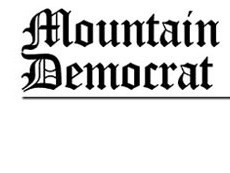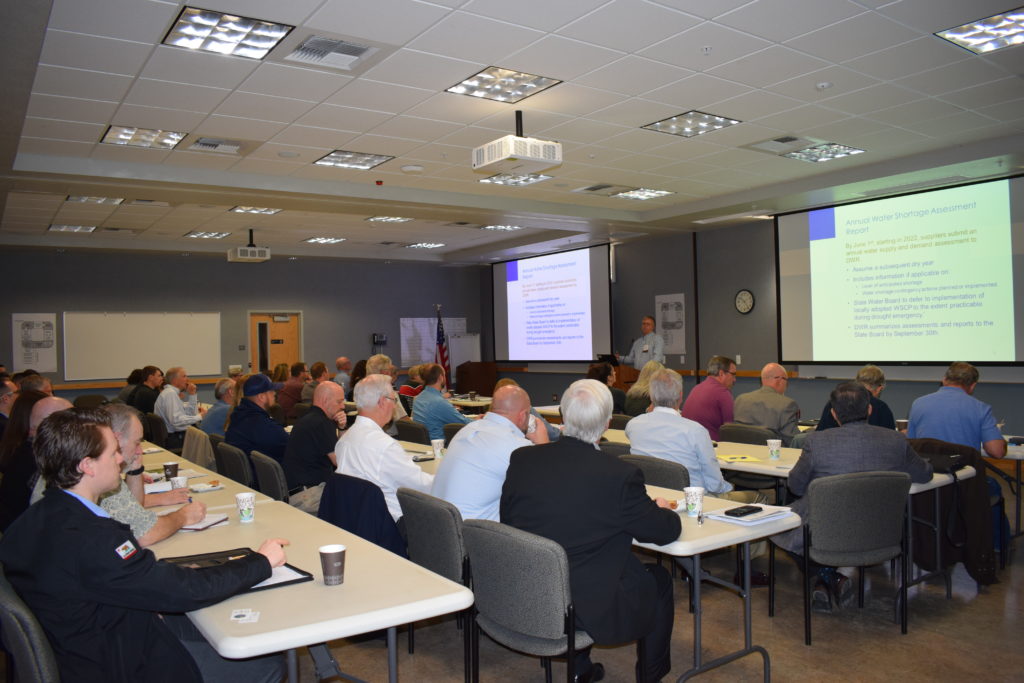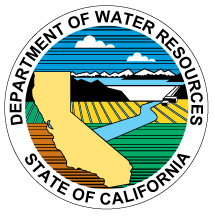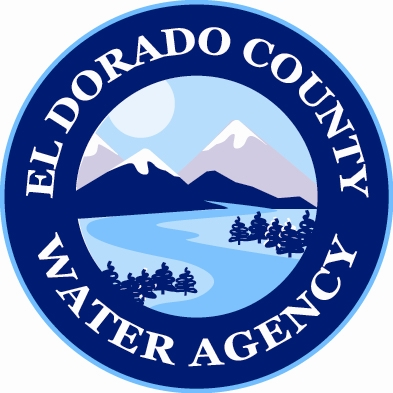Permanent conservation regulations
The Mountain Counties Water Resources Association has long been opposed to loss of local control for this region. Back in 2017 MCWRA hand-carried a letter to each Assembly and Senate legislator’s office in Sacramento to strongly oppose proposed long-term water conservation legislation as well as a backdoor push of legislation on a budget trailer bill that would circumvent the legislative process.
However, signed into law last year, Assembly Bill 1668 and Senate Bill 606 established indoor and outdoor irrigation regulations, making water conservation a permanent way of life. This draconian and arbitrary rationing legislation tramples upon the personal rights of individuals to make choices regarding their beneficial use of water, undermines local conditions and local control, the state’s water rights priority system and area-of-origin water right assurances in this region.
Read the article from the Mountain Democrat Newspaper
Public Drinking Water Suppliers, Wildfire Liability, & Inverse Condemnation
In a letter to the “Commission on Catastrophic Wildfire Cost & Recovery”, organizations and public water suppliers encourage the Legislature and Governor to address the negative impact the existing wildfire liability regime has on California’s public drinking water suppliers, their ratepayers, and dependability of the state’s drinking water systems.
To address the inequities of the current wildfire liability regime, the Commission should propose, and the Legislature should adopt, a clear and unambiguous standard that public drinking water systems are not subject to strict liability when their facilities are unable to provide sufficient amounts of water or water pressure to prevent the spread of a fire, so long as the fire was not started by the public drinking water system. We should not wait for one or more public water suppliers to declare bankruptcy before addressing this significant issue.
French Meadows Forest Restoration Project
Placer County Water Agency launches a partnership in forest restoration
The 28,000-acre French Meadows Forest Restoration Project is using a collaborative, all-lands approach to restore forest health and resilience and reduce the risk of high-severity wildfire in the headwaters of the Middle Fork of the American River, a critical municipal watershed located on the Tahoe National Forest in California’s Sierra Nevada.
The Project was developed by a diverse partnership, including the U.S. Forest Service, which manages most of the land within the project area; Placer County Water Agency, which manages two reservoirs downstream of the project for municipal water and hydropower; The Nature Conservancy, one of the world’s largest conservation organizations; the Sierra Nevada Conservancy, a state agency and funder; Placer County, a business partner in the hydropower project; the American River Conservancy, an adjacent private landowner; and the Sierra Nevada Research Institute at UC Merced.
The French Meadows Project aims to accelerate ecologically-based forest and watershed restoration on the Tahoe National Forest through a shared stewardship approach involving:
• Collaborative Management. The partners co-led development of the project and hired consultants to undertake planning and environmental analysis, substantially reducing the planning time for similar Forest Service projects.
• Diverse Fundraising. The partners raised funds from a wide variety of federal, state, local, and private sources, including significant investment from downstream water beneficiaries like the water utility and private beverage companies.
• Innovative Project Implementation. Placer County will hire contractors to implement thinning and other mechanical treatments, under a Master Stewardship Agreement with the Forest Service. The Nature Conservancy and the Forest Service will work together to develop and implement a prescribed burn plan.
• Watershed Research. The Sierra Nevada Research Institute is leading research to better understand and quantify the Project’s potential forest health and water supply benefits.
For more on this restoration project, click this link: FMP Fact sheet
Watch this four minute video: https://pcwa.app.box.com/s/kq6jx141ungy7z4q8sncv32ttgqk3yxi/file/412491175704
Senate Bill 474 – a threat to area of origin water rights/Senate Bill-669 – an alternative to a water tax/Support for funding to Paradise Irrigation District
Senate Bill 474
In a recent letter to the Honorable Henry Stern, the Mountain Counties Water Resources Association (MCWRA) wrote to express opposition to SB 474, relating to the appropriation of water.
Under existing law, the Department of Water Resources is required to make and file with the State Water Resources Control Board applications for the appropriation of any water that, in the department’s judgment, is or may be required in the development and completion of all or part of a general or coordinated plan for the development, utilization, or conservation of the water resources of the state. Existing law gives those applications priority, as of the date of filing the application, over any subsequent application and exempts certain water rights diligence provisions from generally applying to the applications.
SB 474 would eliminate the exemption from the application of the diligence provisions as of January 1, 2021.
Letter: MCWRA – SB 474 Oppose
There will be a hearing of SB 474 on Changes in County of Origin Water Right Seniority by the Senate Natural Resources and Water Committee on April 23rd. You are encouraged to watch for the Staff Analysis and consider attending the hearing to testify, as appropriate.
Committee Chair, Henry Stern
Senate Natural Resources Committee Agenda: https://sntr.senate.ca.gov/agenda
Senate Bill 669
In a recent letter to the Honorable Ana Caballero, MCWRA wrote to express support for SB 669, Water Quality, Safe Drinking Water Fund, a measure to provide a stable funding source for safe drinking water. SB 669 would establish the Safe Drinking Water Trust that is intended to be funded from the General Fund for safe drinking water projects. As opposed to a “water tax”, this measure is a better approach to addressing the human right to water and community water systems in disadvantaged communities.
Letter: MCWRA – SB 669 Support
Support for funding to Paradise Irrigation District
MCWRA sent a letter to the Honorable Senator Jim Nielsen and the Honorable Assemblyman James Gallagher to support their efforts to backfill funding for the Paradise Irrigation District help keep the district operating while Paradise recovers and rebuilds from the November 2018 Camp Fire.
Letter: Support for backfill funding for the PID
Implementing water conservation legislation
 Implementing water conservation legislation
Implementing water conservation legislation
 Water agency personnel from throughout the mountain counties gathered on March 15 at El Dorado Irrigation District headquarters for a workshop on how the state’s new water conservation legislation will be implemented.
Water agency personnel from throughout the mountain counties gathered on March 15 at El Dorado Irrigation District headquarters for a workshop on how the state’s new water conservation legislation will be implemented.
Sponsored by the Mountain Counties Water Resources Association, the workshop’s featured speaker was Peter Brostrom who leads the water use and efficiency branch of the California Department of Water Resources.
Brostrom explained in detail how the new legislation, Senate Bill 606 and Assembly Bill 1668, which was passed last year, will be implemented and the role the DWR will play.
John Kingsbury, the executive director of the MCWRA, opened the workshop by noting that the organization had opposed the legislation, saying it represented a loss of local control and personal freedom. He also worried, “where this is all headed and the unintended consequences for the region.”
Other concerns he had were the potential revenue losses to water agencies, the cost of all the additional reporting that will be required, losses to agriculture, tourism and the local economy and the effect on people’s quality of life.
Diving right into the topic, Brostrom began by explaining that the goals of the legislation are not conservation but rather using water more wisely, eliminating water waste, strengthening local drought resilience, improving agricultural water use efficiency and drought planning.
For the full article, click the link below: https://www.mtdemocrat.com/news/implementing-water-conservation-legislation/
Regisration closing this Wednesday for the March 15, 2019, DWR Briefing
Last chance to register for this important DWR briefing at EID this Friday, March 15.
Mountain Counties Water Resources Association will be holding a Department of Water Resources (DWR) briefing on March 15, 2019 on DWR’s implementation of the long-term Water Conservation Framework legisla
Register Here for MCWRA Event – DWR Briefing
Long-term Conservation Framework – What will be Required – DWR’s Role for Outdoor Irrigation
Date: Friday, March 15
Locaton: El Dorado Irrigation District, 2890 Mosquito Rd., Placerville
Doors Open: 9:00 am for registration and networking
Program: 10:00 am – noon with Q&A
Register Here for MCWRA Event – DWR Briefing
SEATING IS LIMITED and only a few seats left – NO WALK-INS
El Dorado County Water Agency Announces Dissolution of El Dorado Water & Power Authority
El Dorado County Water Agency Announces Dissolution of El Dorado Water & Power Authority
PLACERVILLE – The El Dorado County Water Agency (EDCWA) announced today that the El Dorado Water and Power Authority (EDWPA) is dissolving in order to more effectively manage all project efforts going forward. All functions of EDWPA will be assumed by EDCWA, with no interruption to ongoing or future efforts.
EDWPA was established in 2004 as a joint powers authority between the El Dorado County Water Agency, El Dorado County and El Dorado Irrigation District, as the key stakeholders negotiating with SMUD as part of its Federal Energy Regulatory Commission (FERC) relicensing process. The intent of the JPA was to provide one unified voice for all of the parties being represented. The Board of Directors for the JPA consisted of representatives from each of the three agencies.
News Release: EDWPA_NewsRelease_02_11_19
Placer County Water Agency acts to protect integrity of PG&E water supply
AUBURN, Calif. (February 20, 2019) — In the wake of Pacific Gas & Electric’s (PG&E) recent bankruptcy filing, the Placer County Water Agency (PCWA) is warning of potential threats to the water supply and reliability of nearly 200,000 Placer County residents should PG&E liquidate its Drum Spaulding Project.
“Although there is no way to know at this early stage how PG&E’s bankruptcy will unfold, it is vitally important to remember that numerous Sierra Nevada foothill communities still rely on
PG&E as a water utility,” said PCWA General Manager Einar Maisch. “If recent news reports are true, that the California Legislature and the Public Utilities Commission are considering the divestiture of PG&E assets to fund its liabilities, it could have disastrous consequences.”
Improving California’s Forest and Watershed Management
LEGISLATIVE ANALYST’S OFFICE – February 13, 2019
Improving California’s Forest and Watershed Management
PRESENTED TO:
Assembly Budget Subcommittee No. 3 on Resources and Transportation, Hon. Richard Bloom, Chair
Assembly Committee on Natural Resources, Hon. Laura Friedman, Chair
An Overview of California’s Forestlands
- Forests provide critical statewide benefits for water supply, climate change mitigation, and wildlife habitat.
- A changing climate increases the importance of maintaining this beneficial role.
- Most of the forests across the state are in an unhealthy condition. Forests display excessive vegetation density and unprecedented levels of tree mortality.
- Broad Consensus That a Suite of Activities Is Needed to Improve Forest Conditions. Management activities include mechanical thinning, prescribed burning, and meadow restoration.
The full report can be found here: Improving California’s Forest and Watershed Management




